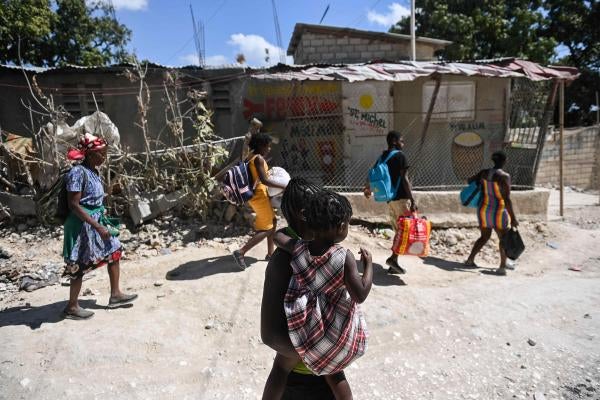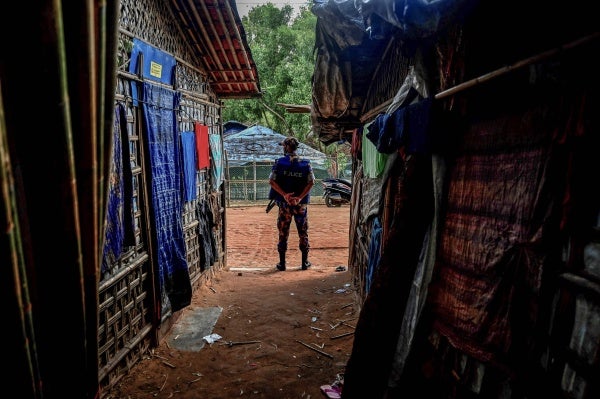Lire la version en français / Hier die deutsche Ausgabe lesen / Lea la versión en español
When this newsletter looked at Haiti’s living nightmare in September, we noted international security support may be necessary to help stem the horrific breakdown of public order. We did not say this lightly – past interventions left a trail of abuses – but the situation was so bad, the world needed to re-examine its well-warranted reluctance to get involved.
The situation in Haiti has only deteriorated since.
For years, the people of Haiti have suffered a severe political, humanitarian, and security crisis, and things got even worse with the assassination of the country’s president in 2021.
There’s been a surge in killings and kidnappings, rampant sexual violence, and a severe food crisis. Criminal groups prevent the delivery of humanitarian assistance to people in dire need of food, medicine, and other aid.
In October 2023, the UN Security Council authorized the deployment to Haiti of a Multinational Security Support mission, to be led by Kenya. However, the mission’s deployment has been stalled.
Another complication has now arisen with a ruling by Kenya’s High Court on Friday that blocks the government from deploying police officers to Haiti. The government is appealing.
With extreme violence and the collapse of public order engulfing them, Haitians are wondering how long they’ll have to wait.
The UN Security Council discussed Haiti again last week, and HRW’s executive director Tirana Hassan addressed the body. After reminding Council members of the desperate plight people are facing in Haiti, she explained the need for the international mission to be driven by a human-rights-based approach – and she detailed what that would look like.
Of course, given the deadly mistakes of past interventions in Haiti, the deployment will need diligent oversight. The Council should also support investigations into any allegations of abuse and ensure accountability of anyone found guilty.
And although ending the country’s violent chaos may be the most immediate concern, any lasting peace and security will need to do more than that. People need well-coordinated humanitarian and development assistance and a transitional government that can credibly work with international partners to ensure the rule of law until free and fair elections can be organized.
For too long the victims of criminal groups and their backers, the people of Haiti deserve to see strong measures put in place to ensure justice and accountability for past crimes.
And, of course, the international intervention needs to curb the illicit flow of arms and ammunition to criminal groups in Haiti.
Haitians are facing terrifying levels of violence – unprecedented even for a country with as troubled a recent history as Haiti.
As Tirana says: “Each day that passes without a meaningful increase in international support that addresses all aspects of the crisis puts more lives at risk.”









